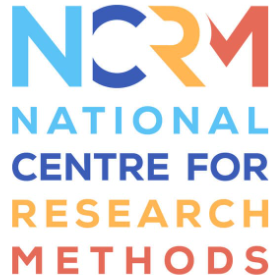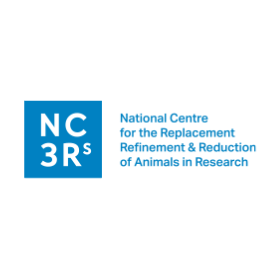All the events here are relevant to people working in dementia research. If you would like to add your own you can submit an event

- This event has passed.
Introduction to Experimental Methods in Social Sciences
01/07/2024 - 05/07/2024

This five-day workshop introduces participants to the theory and practice of experimental methods in Social Sciences. It delivers an overview of prevalent approaches, specifically lab, field, and survey experiments, providing a solid introduction to experimental methodology and the practical skills to design, implement, analyse, and present experiments.
The target audience of the course are professionals and researchers, especially those approaching experimental methods for the first time. The course does not require any previous knowledge of experimental design or statistics and is open to participants with basic secondary school knowledge of mathematics. Prospective participants with some prior knowledge of experimental methods that would like to deepen their knowledge and skills on one specific approach (lab, field, or survey), can selectively sign up for sessions across the three days covering those approaches.
The workshop objective is to teach participants to become critical readers of the experimental literature, and to equip them with the ability to design, implement, analyse, and report their first experiment.
It will briefly overview service providers for marketing experiments (Facebook, Google), access panels and online marketplaces (Lucid, MTurk, Prolific, etc.), and survey providers that support survey experiments (Yougov, Ipsos etc.).
The workshop will be taught by an interdisciplinary team of faculty members of the Centre of Behavioural Experimental and Action Research (C-BEAR), leveraging examples from Politics, Economics, Business and Psychology.
The workshop will address the responsible conduct of research during experimental studies, covering research ethics, pre-registration, and debriefing practices for deceptive research designs.
Register to Attend
Course Content
Days 1 and 2 will provide the basic knowledge to design, analyse and present experiments such as randomised controlled trials (RCTs), while Days 3, 4, and 5 will focus on laboratory, survey and field experiments.
Day 1: Foundations in experimental methods
Instructors: Professor Tereza Capelos, Dr. Jana Sadeh, and Dr. Paolo Spada
Theory
- History, definitions and different types of experiments
- Advantages and disadvantages of experiments with respect to other research designs
- The ethics of experiments
Practice
- Implementing a simple experiment
- Analysing and presenting the results of a simple experiment
Day 2: Key concepts and essential experimental techniques
Instructors: Professor Tereza Capelos, Professor Jane Parry, Dr. Jana Sadeh, and Dr. Paolo Spada
Theory
- The Potential Outcome Model and its assumptions
Practice
- What is pre-registration and how to pre-register an experiment?
- Replication of a simple experiment.
Day 3: Survey Experiments
Instructors: Dr. Paul Conway, Professor Robert Johns
Theory
- Introduction to survey experiments
- An overview of classic survey experiments
Practice
- Designing a Conjoint experiment in Qualtrics
- Replicating the analysis and presentation of a simple conjoint experiment
Day 4: Field Experiments
Instructors: Professor Gerhard Riener and Dr. Paolo Spada
Theory
- Introduction to Field Experiments
- An overview of classic field experiments
Practice
- A recent example of project management of a field experiment
- Replicating the analysis and presentation of a simple field experiment
Day 5: Laboratory Experiments
Instructors: Dr. Joao Ferreira and Dr. Jana Sadeh
Theory
- Introduction to laboratory experiments
- An overview of classic lab experiments
Practice
- An overview of software (e.g. Z-tree, O-tree) and service providers (e.g. Mturk, Prolific) for lab experiments
- Replicating the analysis and presentation of a simple lab experiment
Learning Outcomes -by the end of the course participants will:
- Be able to read critically the literature on experimental methods in a variety of different disciplines.
- Know how to interact more effectively and efficiently with service providers that offer A/B testing experiments, surveys experiments, or participants’ panels.
- Know how to design, pre-register, implement, analyse and present simple experiments.
- Be familiar with classic lab, survey, and field experiments.
- Be familiar with the ethics and legal requirements for conducting experiments with human subjects.
- Familiar with the statistical methods required for analysing simple experiments.
The target audience of the course are professionals, members of public institutions and researchers that are approaching experimental methods for the first time and are interested to implement an experiment for the first time or to commission an experiment to a survey company or other service provider.
Course does not require any previous knowledge of experimental design or statistics and is open to anybody with basic high school knowledge of mathematics. The level (junior, senior, etc.) of the course is open.
The workshop is taught by a team of faculty members from Politics, Economics, Psychology and Business, and it is targeted to people with interests in any discipline in the social sciences.
The workshop is designed to have no requisite beyond a basic understanding of secondary school mathematics. The first two days will provide the students the mathematical and statistical tools to engage effectively with the rest of the course.
Participants need to bring their own device that can run basic office suites, and free versions of R and Stata. A tablet with a keyboard might also work.
PLEASE NOTE REFRESHMENTS WILL BE PROVIDED BUT PARTICIPANTS WILL NEED TO BRING/BUY THEIR OWN LUNCH.
Cost:
£300 for students. £600 for staff working for academic institutions, Research Councils and other recognised research institutions, registered charity organisations and the public sector. £900 for all other participants. All fees include event materials and morning and afternoon refreshments but lunch is not provided. Fees do not include travel and accommodation costs. In the event of cancellation by the delegate a full refund of the course fee is available up to two weeks prior to the course. NO refunds are available after this date. If it is no longer possible to run a course due to circumstances beyond its control, NCRM reserves the right to cancel the course at its sole discretion at any time prior to the event. In this event every effort will be made to reschedule the course. If this is not possible or the new date is inconvenient a full refund of the course fee will be given. NCRM shall not be liable for any costs, losses or expenses that may be incurred as a result of its cancellation of a course, including but not limited to any travel or accommodation costs.
Website and registration:


